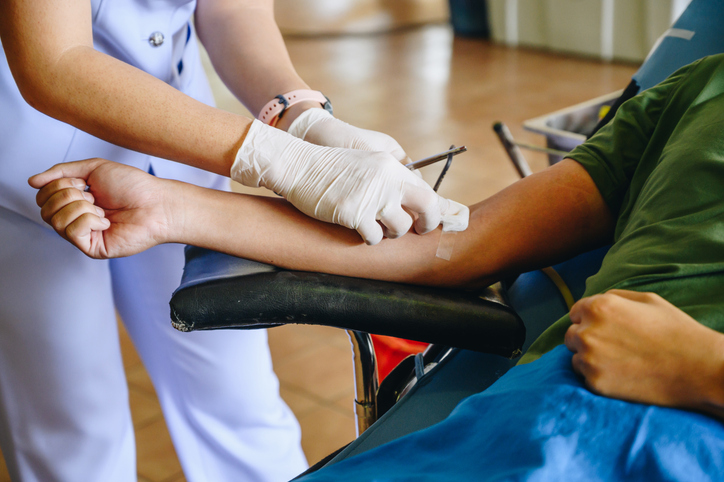Intravenous immunoglobulin (IVIG) is a form of treatment commonly used to treat and prevent hemolytic disease of the fetus and newborn (HDFN).
To understand how IVIG can cause false positive results with regards to syphilis, one first need to understand what IVIG is and how it works.
What is IVIG?
IVIG is a blood product used to treat HDFN, in addition to other immune-related conditions. IVIG itself is composed of pooled immunoglobulin G antibodies that are extracted from the plasma of a number of healthy donors.
IVIG contains the pooled antibodies from multiple donors; this information is important to understanding how it can potentially cause a false positive for another disease.
Read more about HDFN testing and diagnosis
What is syphilis?
Syphilis is a sexually transmitted disease, caused by the bacteria Treponema palladium. Prior to the availability of antibiotics, syphilis was a much-feared disease because it can result in significant disfigurement, especially as the disease progresses.
Today, syphilis can be treated with antibiotics, and disease manifestations are not nearly as severe as they used to be during the pre-antibiotic period.
How can IVIG can cause a false positive for syphilis?
Remember how IVIG is composed of pooled antibodies from multiple donors? Some of these antibodies react with antigens that are utilized in syphilis screening; these include venereal disease research laboratory tests and rapid plasma reagin. This is how IVIG can, in some rare cases, cause a patient to test positive for these antigens even if they do not have syphilis.
If a positive result of syphilis is detected, doctors can conduct Treponema-specific tests that specifically target Treponema palladium, which are the bacteria responsible for syphilis. These tests directly test against the bacteria responsible for syphilis and are less likely to be wrong. If a prior positive result for syphilis is detected, doctors typically initiate these additional tests to confirm/exclude a diagnosis of syphilis.
If you have received IVIG and received a diagnosis of syphilis via screening but have not been sexually active in a way that may have exposed you to syphilis, it is important to remain calm, as false positives are possible. Your best course of action is to allow your doctors to conduct additional tests, after which your doctor will discuss with you the best course of action.
Sign up here to get the latest news, perspectives, and information about HDFN sent directly to your inbox. Registration is free and only takes a minute.

